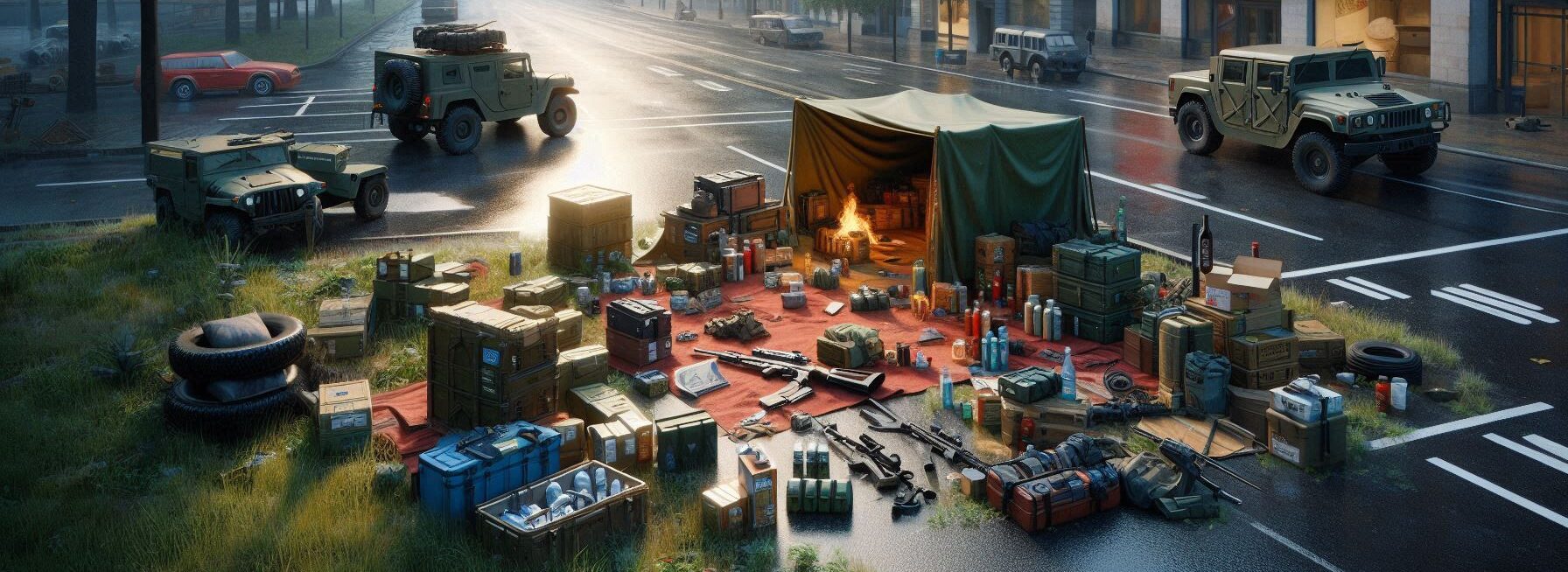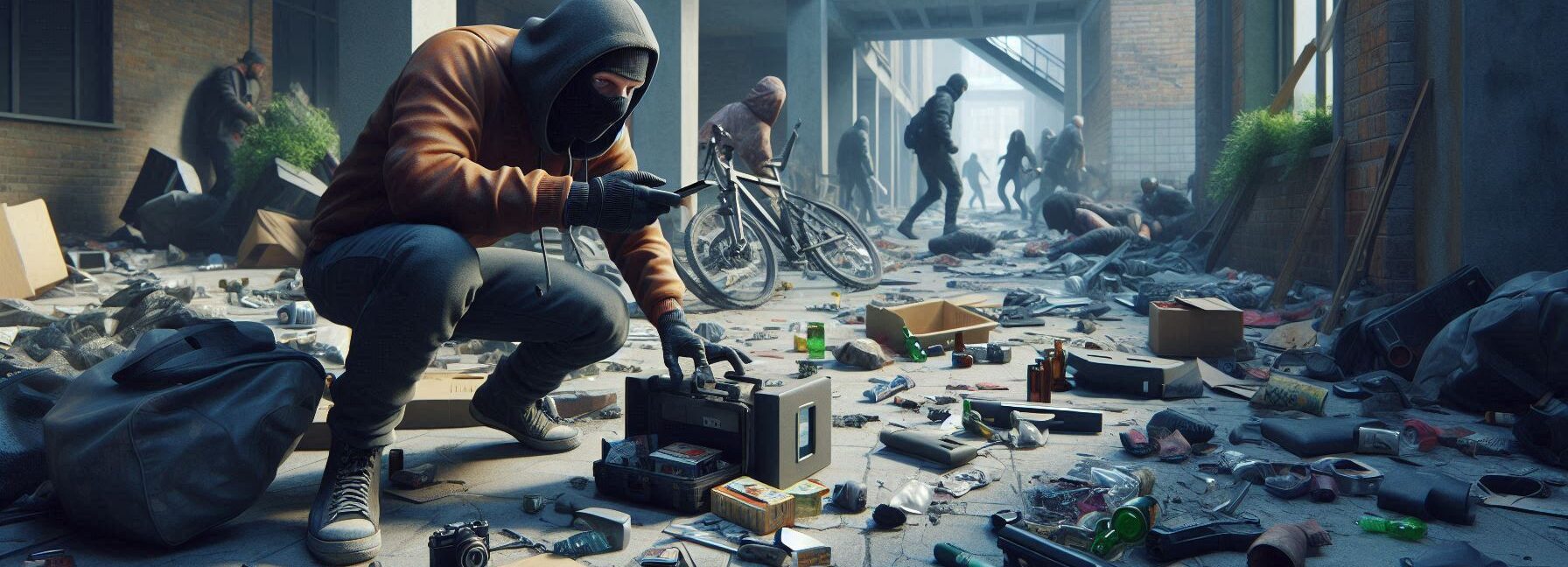Last Updated on November 2, 2025 by Kevin Collier
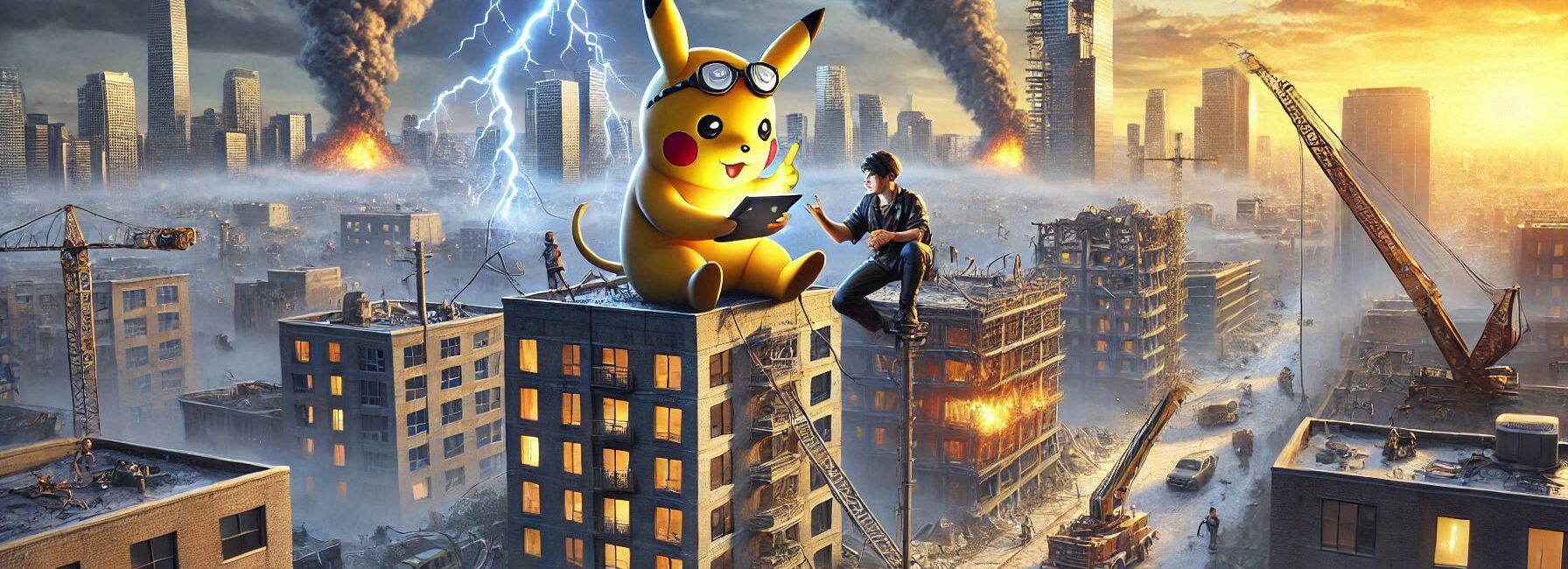
Top Takeaways and Key Concepts
- Keep pens and paper handy to leave clear messages for family and neighbors.
- Use walkie-talkies on pre-assigned channels for fast, reliable local communication.
- Establish simple signaling systems with flags or lights to indicate safety or need.
- Post updates on community bulletin boards to share resources and meeting points.
- Learn ham radio operation to communicate over long distances during grid failures.
Imagine waking up one morning and really wanting your coffee. You try to get your phone, but it's dead. Warning: Drama! You don't have any Wi-Fi, and the only thing you have left are stale chips. What a great way to start the day! Welcome to the world after the grid went down.
It seems like communication has disappeared! It seems like Aunt Edna's fruitcake recipe, which never quite worked out, somehow knocked out the electrical grid. So, how can we keep in touch during this blackout? Let's come up with some smart ideas.
Please Note: This post may contain affiliate links. If you click one of them, we may receive a commission at no extra cost to you. As an Amazon Associate, I earn from qualifying purchases.
What about writing notes like in the past? Get a pen and some paper. You can write short notes to friends or family. Put them on the fridge. “Can we meet at noon?” It makes it more enjoyable, like a treasure hunt. You could even write amusing pictures to make someone smile.
Have you ever considered about using walkie-talkies? They are like magic! They can go pretty far without Wi-Fi. It's like being a secret agent. That's so cool! Also, it speeds up conversations a lot. Just hit a button and talk. You may act like you're on a covert assignment.
You may construct a signaling system with a friend who lives nearby. You may wave a flag or flash a light. Something easy, like “everything's fine” or “let's get together.” It may be a fun short trip that brings everyone together.
Keep in mind that the most important thing is to be creative and have fun! You might miss your phone, but these old-school games can make you and the people around you laugh and have fun. A morning without technology can lead to new connections. So, get your paper, talk into your walkie-talkies, or wave that flag. You can do it!
The Good Old-Fashioned Way: Writing Notes
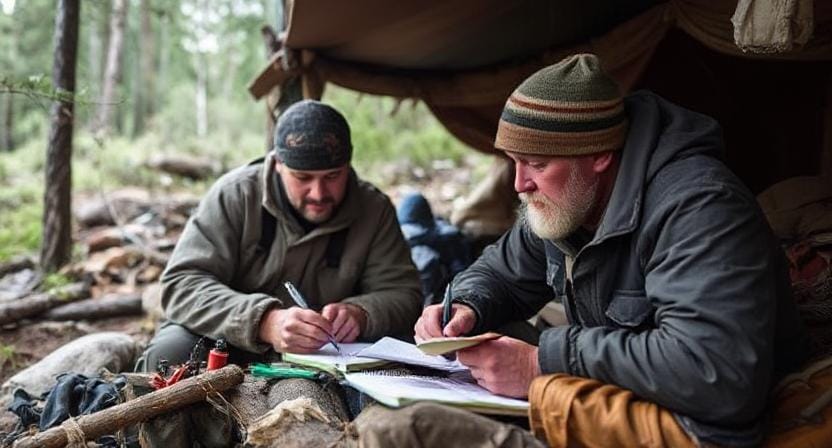
First off, let’s talk about good old-fashioned note writing. You remember those days before texting took over our lives? Back when people actually used pens and paper instead of thumbs tapping screens? Well, guess what? Those skills might just save your bacon!
*** Shop for Survival Gear - Tools - Kits ***
Survival Gear - Bags and Backpacks - Knives - Boots/Footwear - Communication
Outdoor Cooking - Gloves - Hydration - Dry Boxes - Water Filtration Systems
Tents - Sleeping Bags - First Aid Kits - Multi-Tools - Flashlights - Fire Starters
Navigation - Survival Food - Night Vision - Headlamps - Stun Guns - Binoculars
When the grid goes down, grab a stack of sticky notes or any scrap paper you can find—yes, even that pizza box from last week will do. Write messages like “Help!” or “Food supply depleted!” and stick them on your front door or around your neighborhood.
Just make sure they’re legible; nobody wants to decipher chicken scratch while trying to figure out if it says “danger” or “dinner.”
Interestingly enough, I once left a note for my neighbor about borrowing his lawnmower. He mistook it for a love letter! So maybe keep it straightforward unless you're looking for romance in these trying times.
Using Signal Fires and Smoke Signals
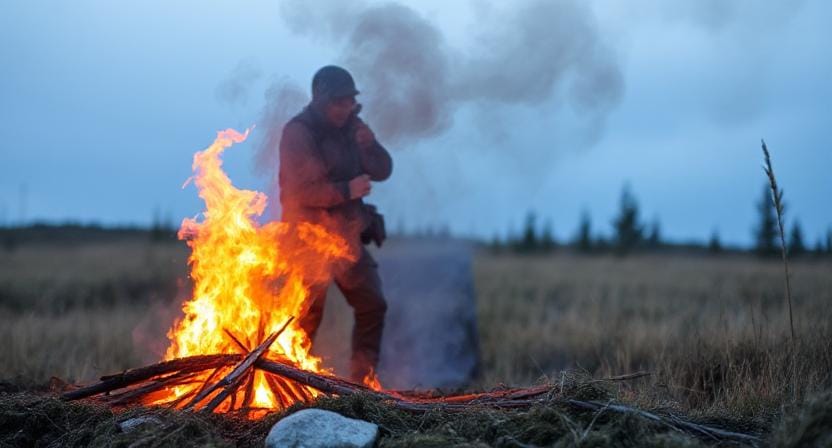
Have you ever considered using signal fires? This method dates back to ancient civilizations and has been proven effective throughout history—plus it adds a bit of flair to your survival game! All you need is some dry wood and kindling.
To begin, pick an open space that is far away from buildings that could catch fire (you don't want to set your apartment complex on fire by mistake). Make a small fire and then put green leaves or wet things on top of it. The smoke will make signals that people far away can see. It's like sending an SOS, but with more drama!
Before you start sending smoke signals like a caveman, remember that the direction of the wind is important. If you don't, you can end up telling someone across town that you're extremely excited about barbecue.
Walkie-Talkies: Your New Best Friends
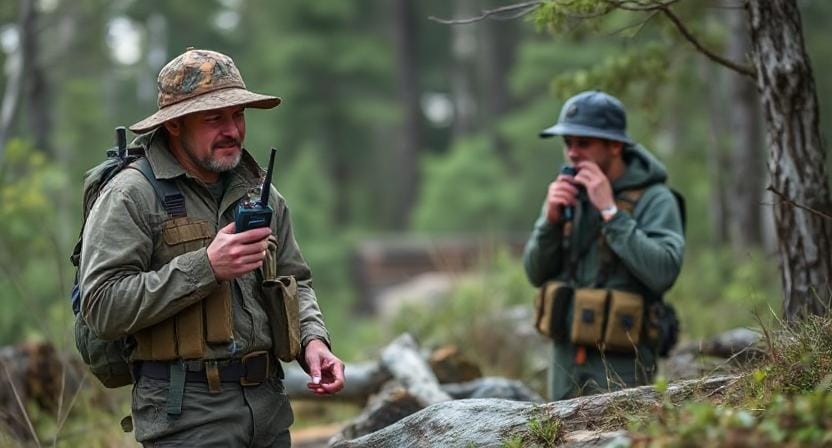
Another choice is to buy walkie-talkies. These handy tiny gadgets work like cell phones, except they don't have all the annoying network problems. They use radio waves instead of cell towers, which is great for when everything else breaks down.
Get yourself a couple of good walkie-talkies before something bad happens or whenever you want to be extra ready. Give them specific channels so that family members know which button to click when they need help or just want to talk about their current Netflix show.
Remember that range varies by model and terrain; urban landscapes filled with buildings can interfere with signals. So don’t expect clear communication if you're trying to reach someone five blocks away—it’ll sound more like they’re trapped inside a tin can than having an actual conversation!
Community Bulletin Boards: The Urban Grapevine

Speaking of community connections, let’s not overlook bulletin boards! These relics from pre-digital times still hold value in today’s chaotic world. Find one near your local grocery store or community center—and if there isn’t one? Start one!
Post notices about food supplies available or where people can meet up safely after dark (because let’s face it: wandering around aimlessly at night isn’t ideal). Use bright colors so they stand out against the drabness of urban life—a neon pink poster saying “Meeting Point: The Big Oak Tree” could become legendary among survivors!
Not only does this foster communication within your neighborhood; it creates camaraderie too! Everyone loves sharing stories over makeshift meals while discussing who brought what ingredient (spoiler alert: everyone brings beans).
Ham Radio Operators: The Unsung Heroes
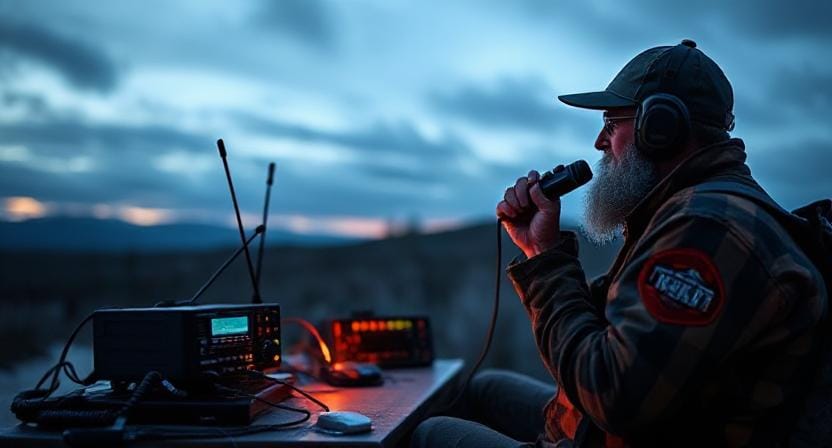
Finally, let’s give some love to ham radio operators—the unsung heroes of emergency communications! These folks have licenses allowing them access to amateur radio frequencies where they can connect with others during disasters.
If you've got an interest in learning how ham radios work (and trust me; it's cooler than it sounds), consider taking classes beforehand so you'll be ready when needed most!
Once trained properly—you’ll be able not only talk locally but potentially reach individuals hundreds of miles away—all without worrying about battery life dying faster than my enthusiasm for exercise!
And speaking of ham radios—they require equipment and practice—but many local groups welcome newcomers eager to learn how these machines operate effectively.
Conclusion
It can be scary at first to figure out how to talk to people when the grid goes down. But don't worry! We are creative and resourceful. Also, a little amount of humor may go a long way.
Those notes you leave all over the place? They might be the key to keeping in touch! Picture seeing a note from a loved one on the fridge that says something nice. It might even make you laugh. “Don't burn the toast!” Who would have thought that reminders could be such fun?
It could help to make a short list of fun ways to connect. You may get your family together to play charades. Just motions, no speech. Trust me, it can be a lot of fun!
What about getting together outside? People enjoy to talk around a campfire. You could forget about the Wi-Fi being out and toast marshmallows and tell stories. You, your companions, and the stars overhead. Sounds nice, doesn't it?
This mess can help you get closer. You might even laugh at how much you depended on all that technology when you look back. It's about making memories that make you smile, even when things are crazy.
So, put those notes about. Get your friends together and get ready for an adventure! You'll find strategies to stay in touch and make the best of a bad situation. It's all about the stories we tell each other later, right?
Frequently Asked Questions
What is the simplest communication method if electronics stop working?
Pen and paper notes are easy to use and don’t require power, making them reliable for leaving messages around shared areas or homes.
How effective are walkie-talkies in a city grid-down scenario?
Walkie-talkies work well for local communication when using pre-planned channels, though buildings may reduce range and clarity.
Can visual signals really help in an urban emergency?
Yes, simple flag or light signals can quickly indicate status, safety, or meeting intentions between nearby households or neighbors.
Why use bulletin boards when there’s no grid?
Community boards provide a shared location to post updates on supplies, meeting points, or important neighborhood alerts.
Is ham radio hard to learn?
Ham radio requires basic training and a license, but once learned, it offers long-range communication without internet or cell service.
Should communication channels be planned before an outage?
Yes, agreeing on codes, channels, and meeting points in advance prevents confusion and speeds response when the grid goes down.
Can communication methods be combined?
Using multiple methods—notes, radios, and signals—creates redundancy and reduces the risk of missed information during emergencies.
Suggested Resources:
Survival Communications
https://www.survivalcommunications.com
Emergency Preparedness Guide
https://www.ready.gov/prepare
The Complete Handbook of Emergency Communication
https://www.emergencycomms.com

Kevin Collier is a seasoned survivalist and expert in prepping and homesteading, contributing to WiseSurvive.com. With a deep-rooted passion for self-sufficiency and outdoor survival skills, Kevin shares practical advice, strategies, and resources to help individuals prepare for any challenge. His informative articles cover a range of topics, from essential survival techniques to sustainable living practices, empowering readers to thrive in any situation. Whether you're a novice or a seasoned prepper, Kevin's insights will inspire you to take charge of your readiness and build resilience for the future.

